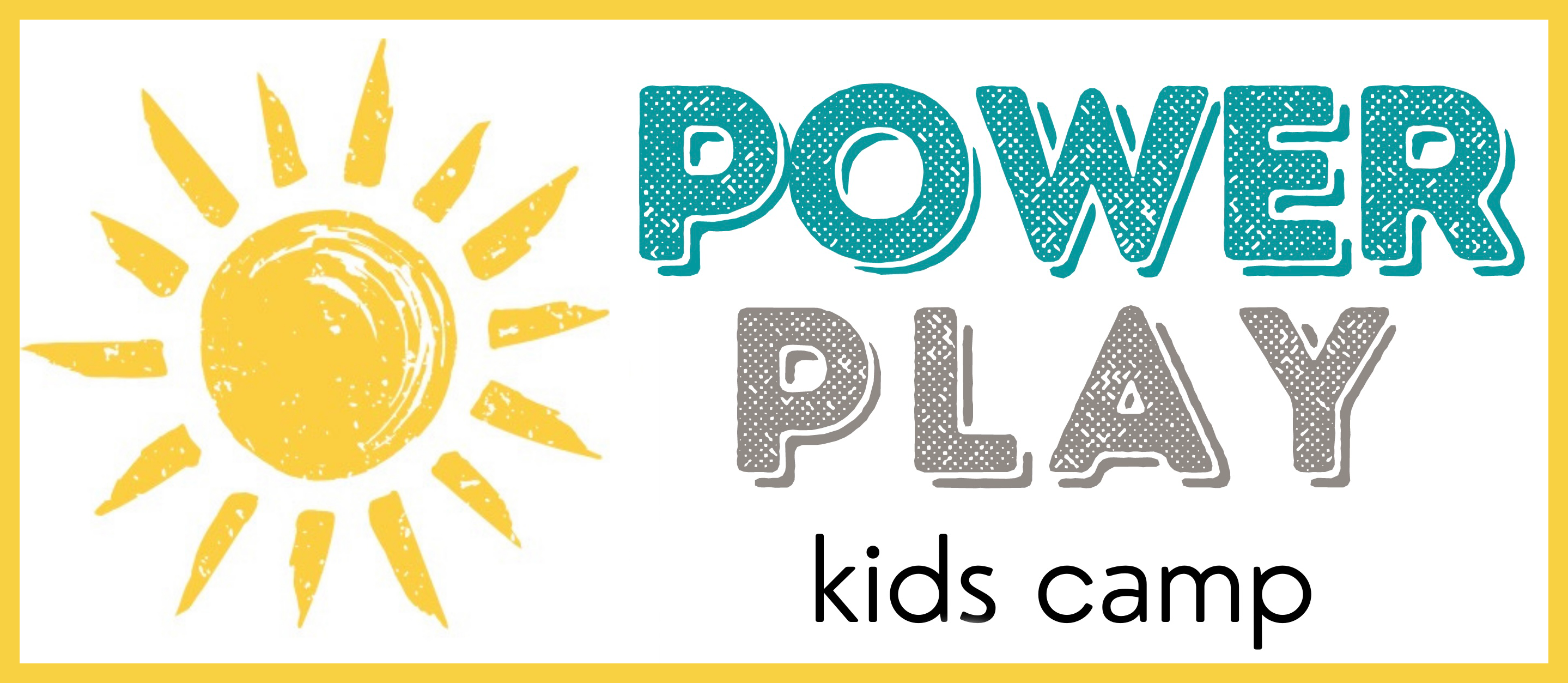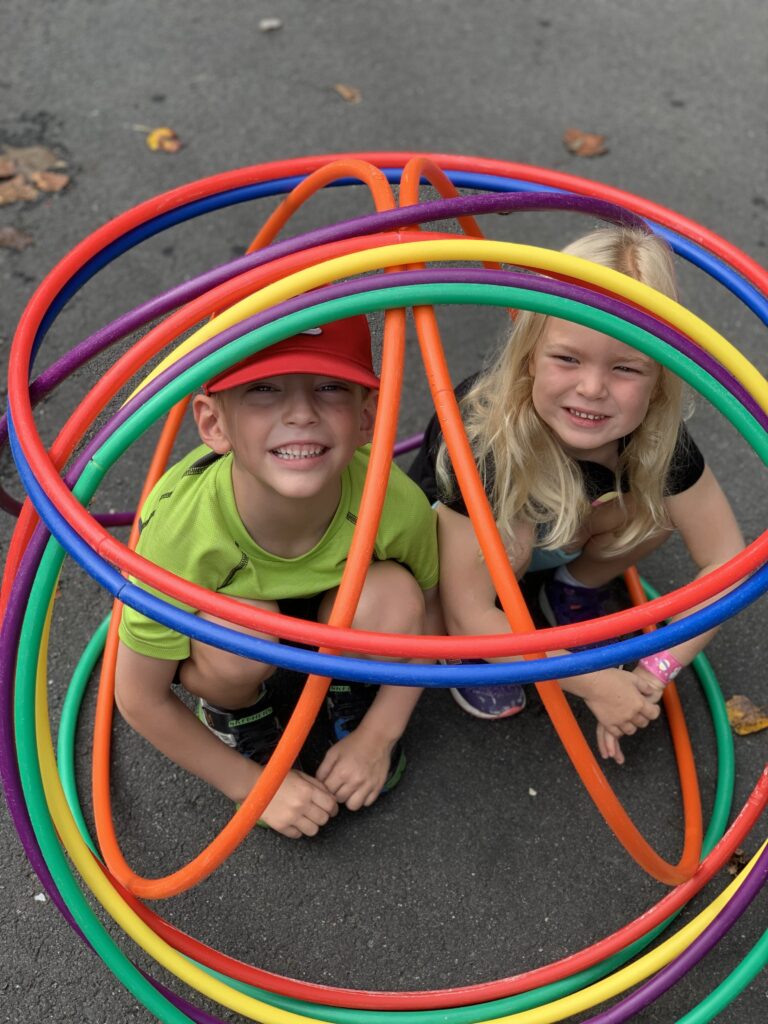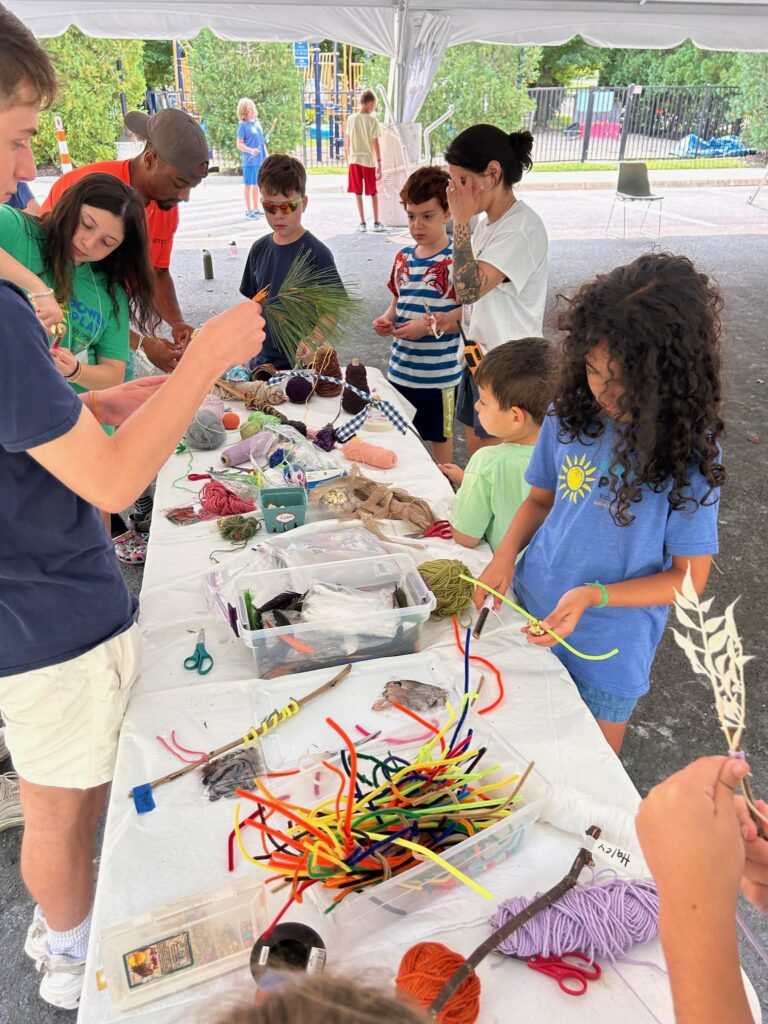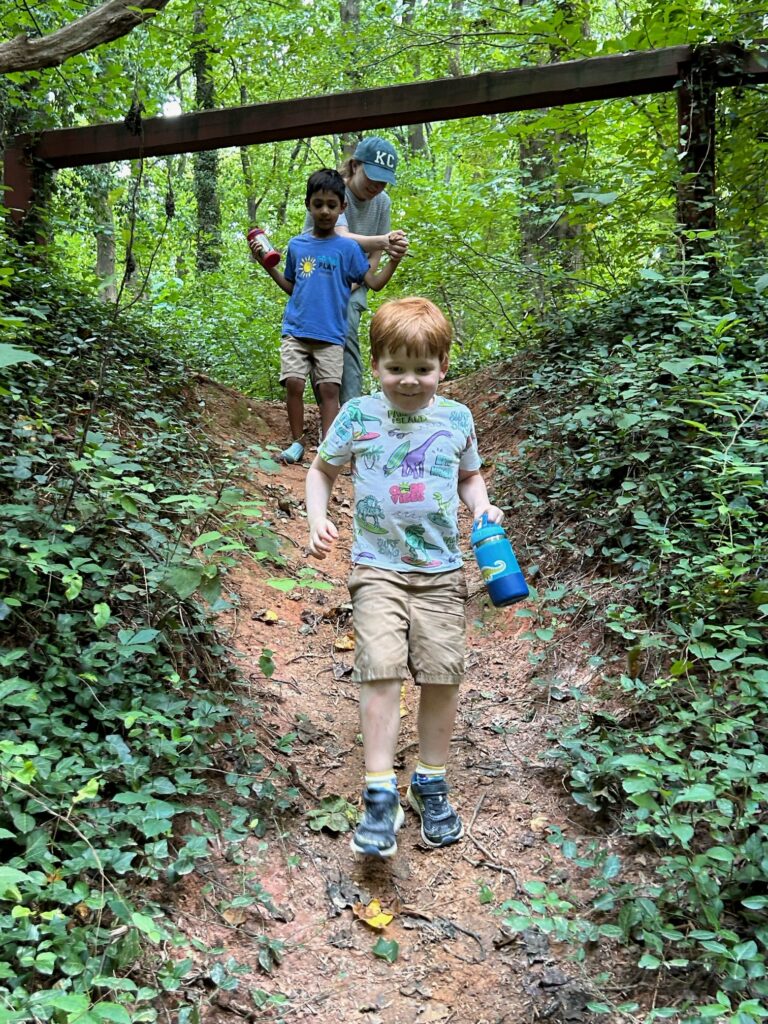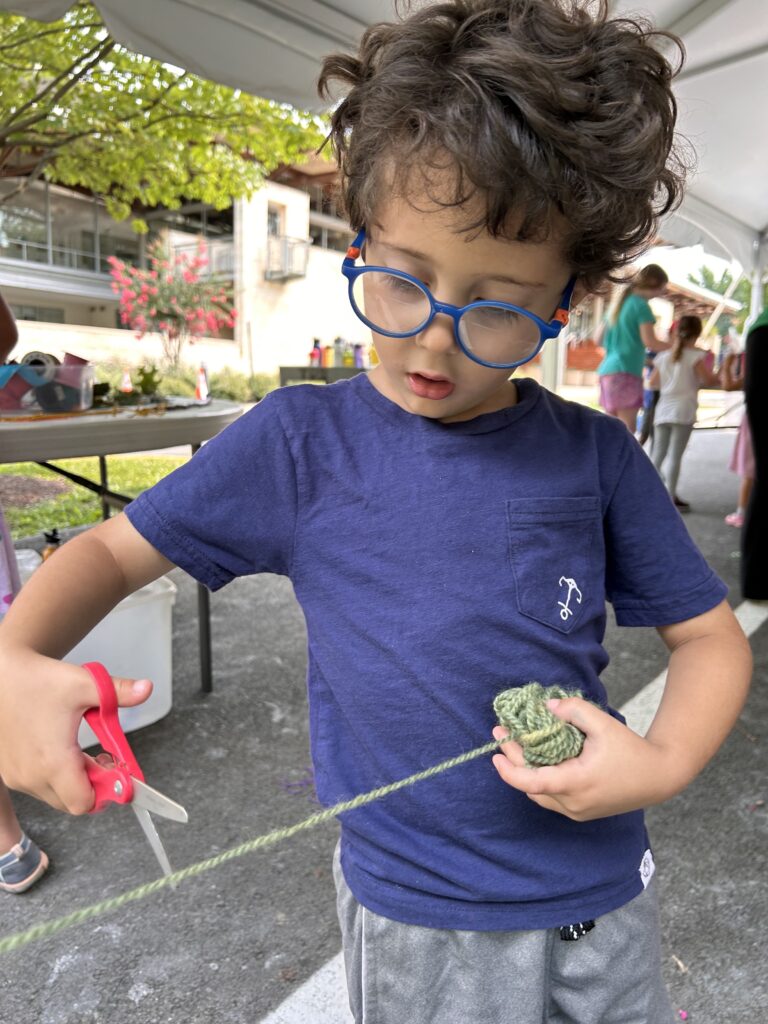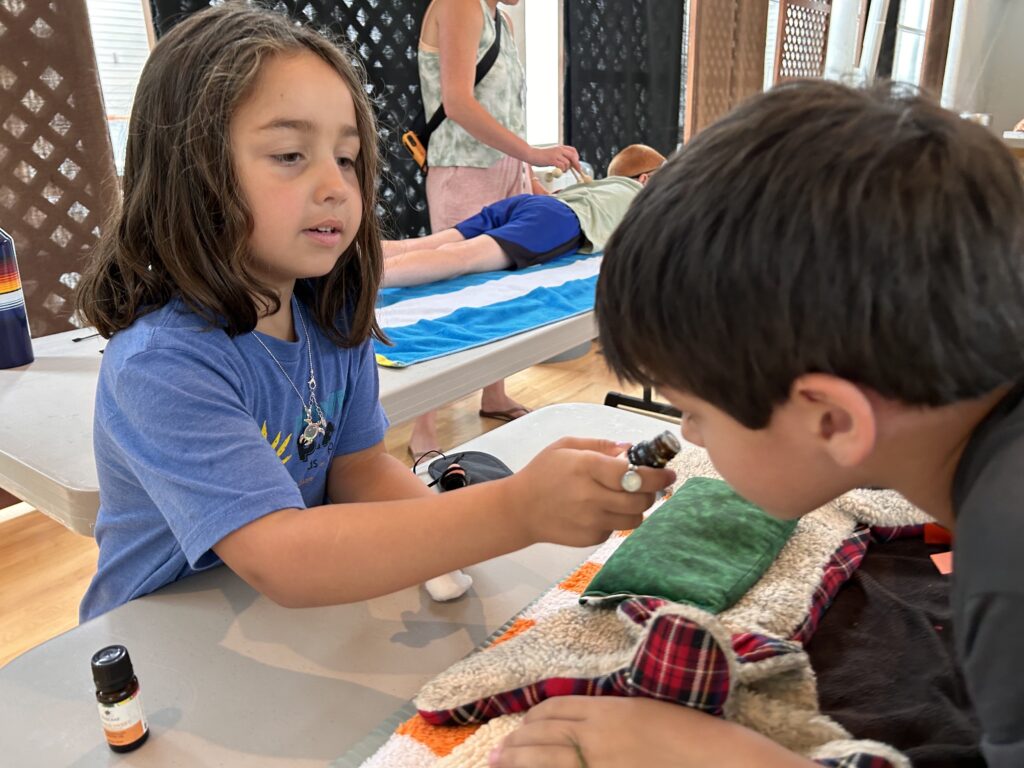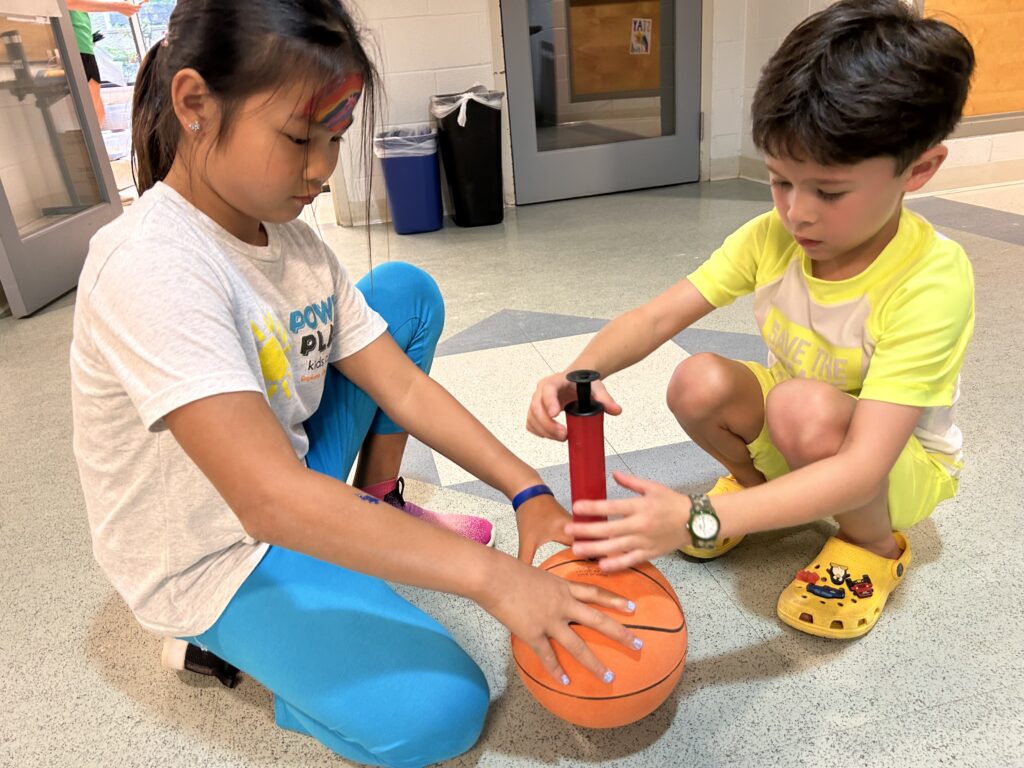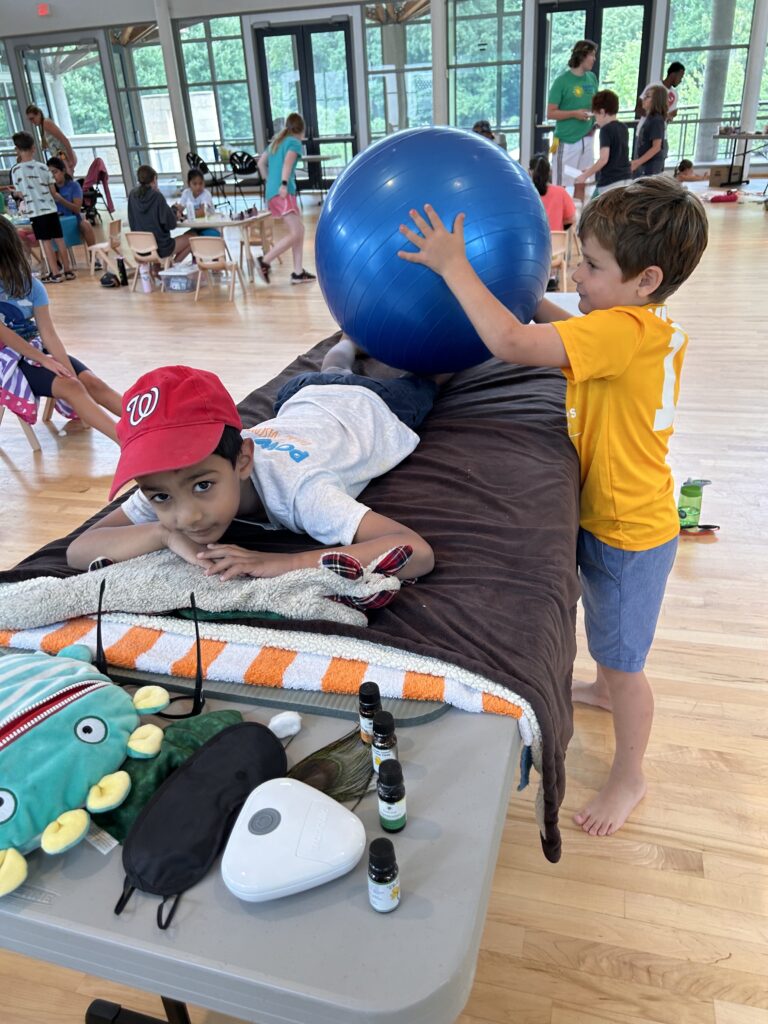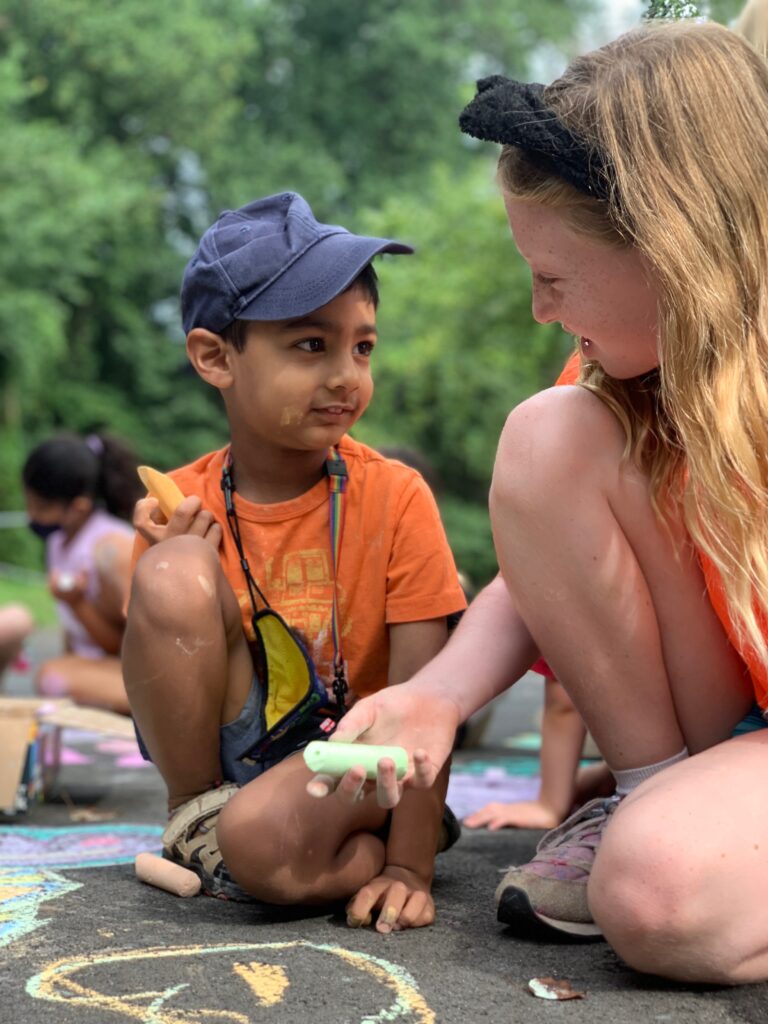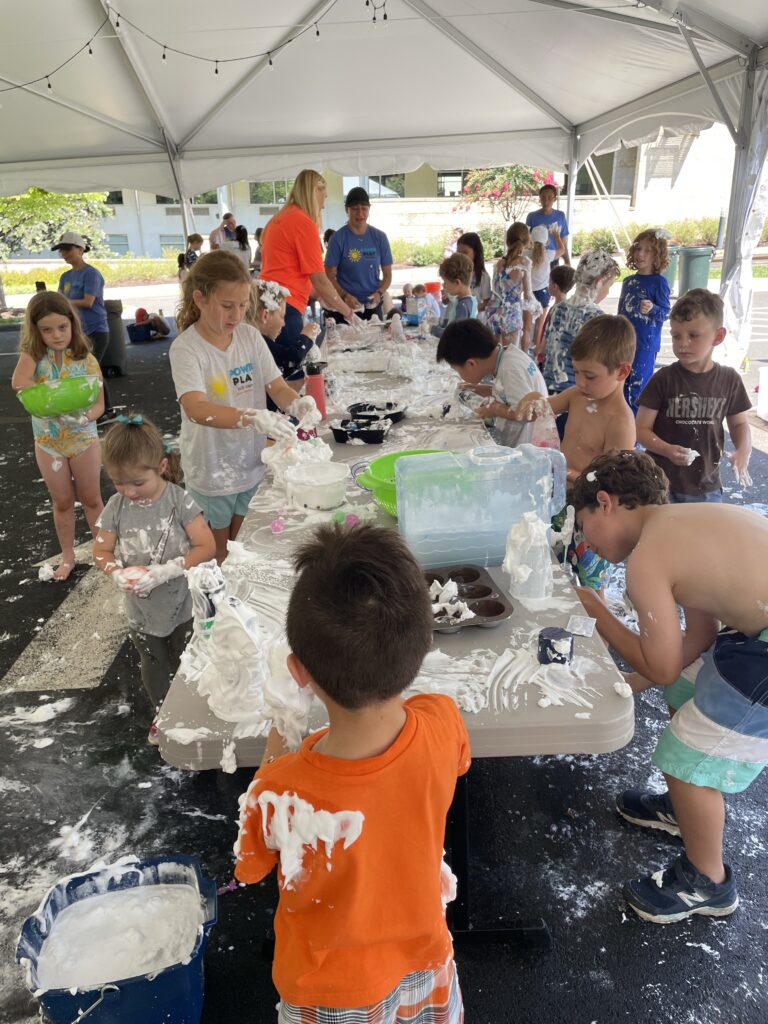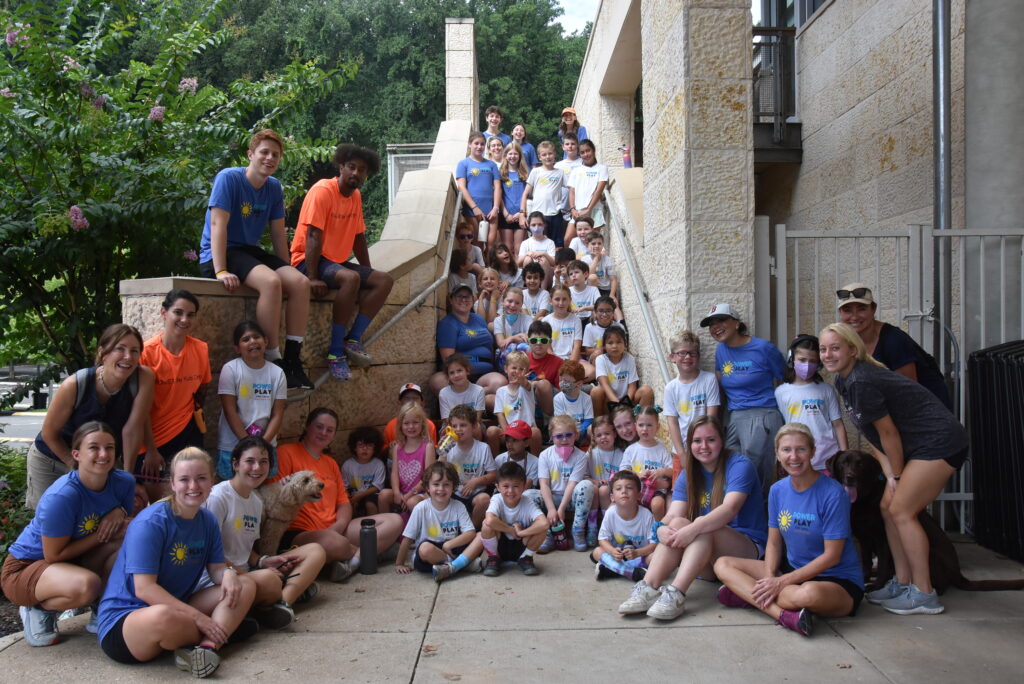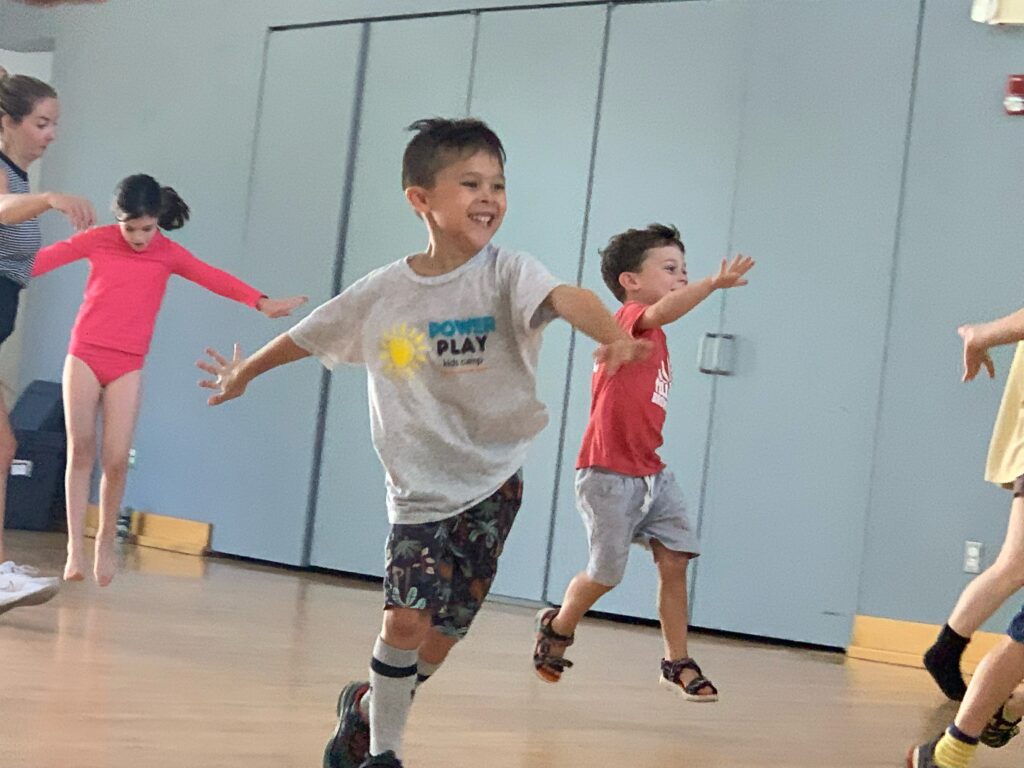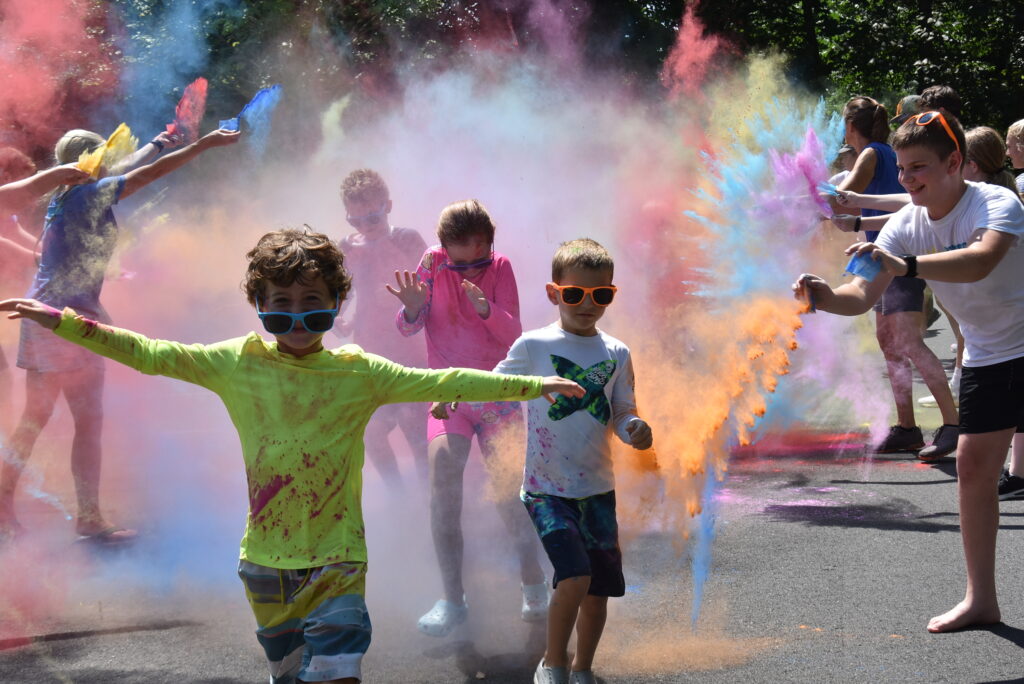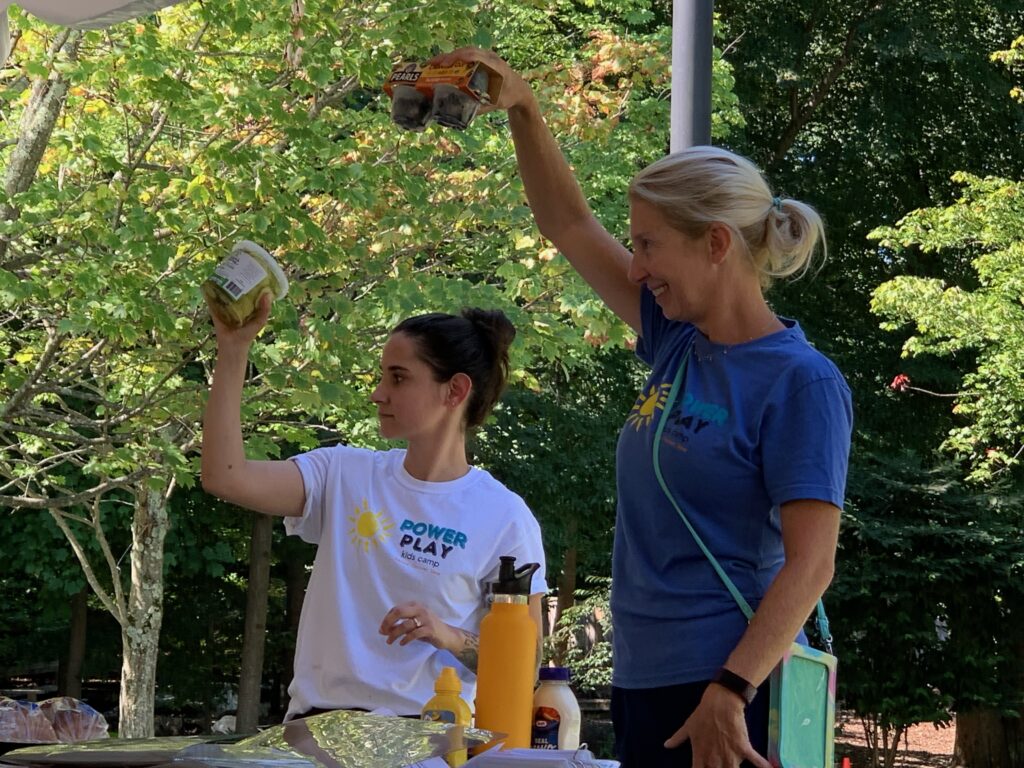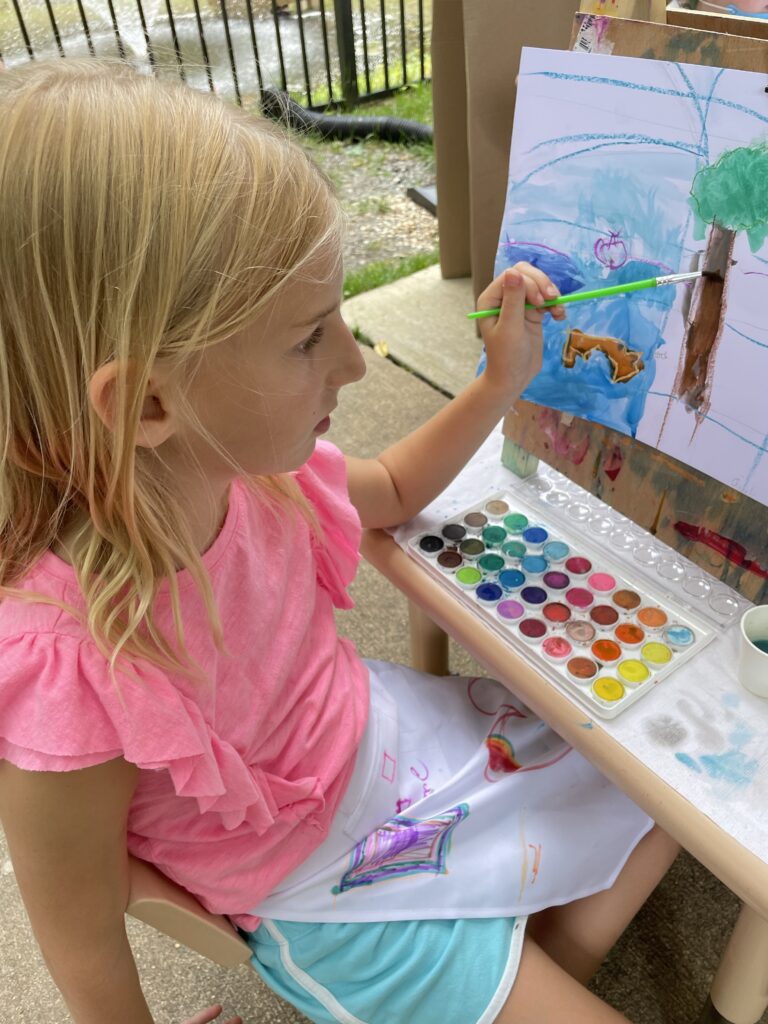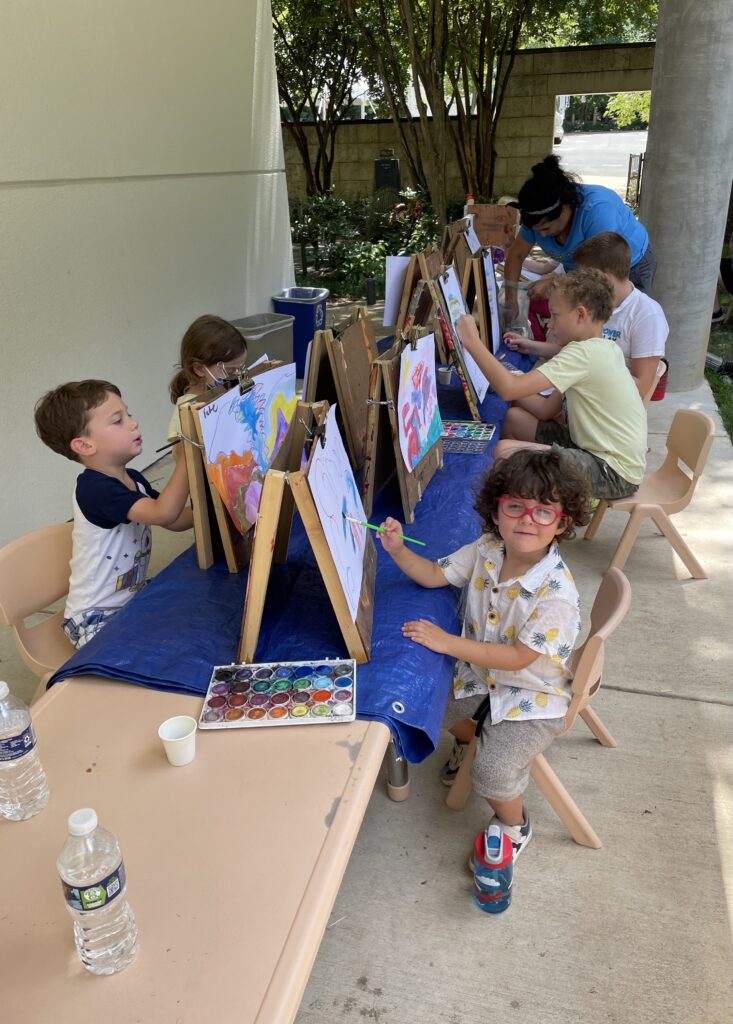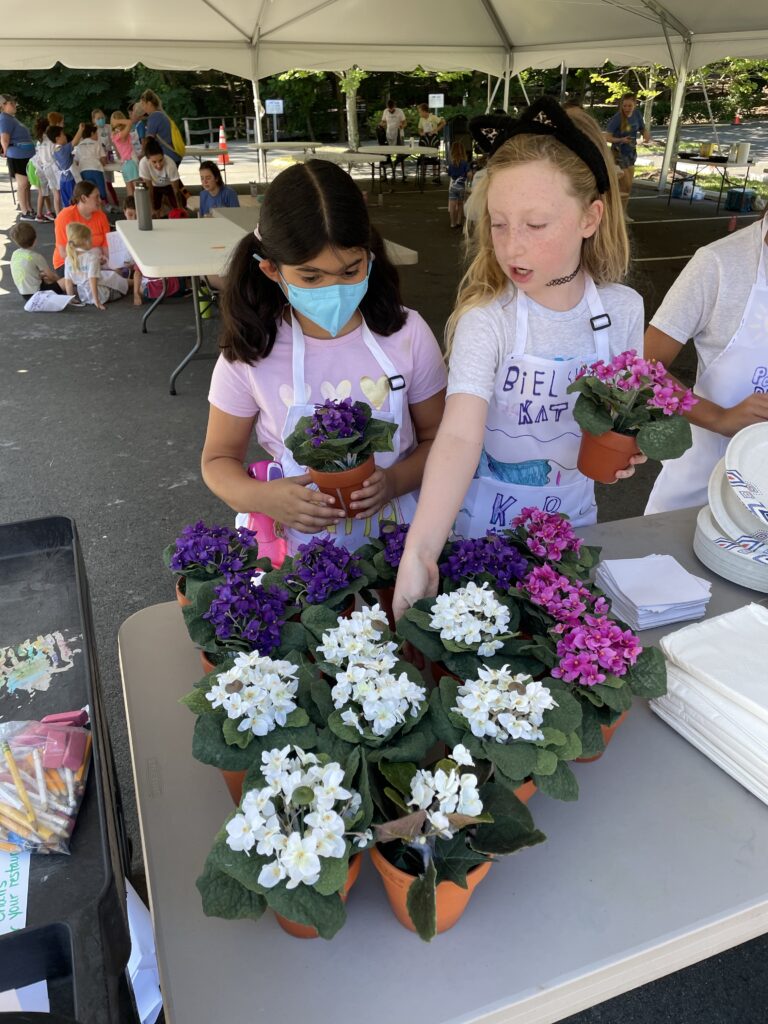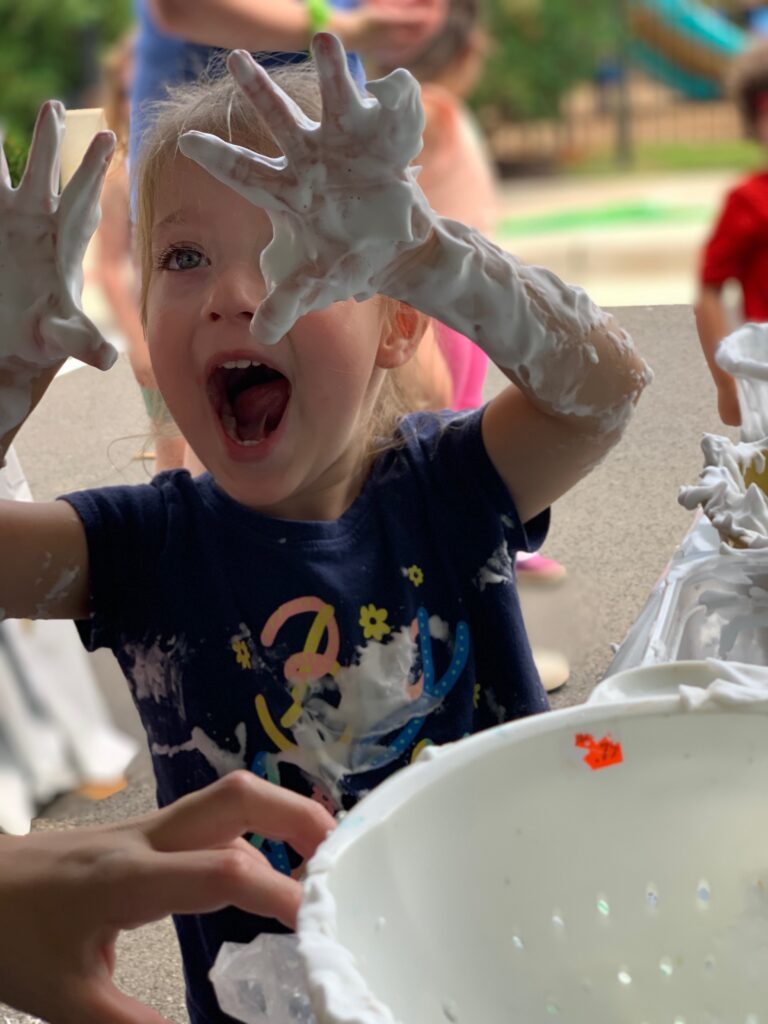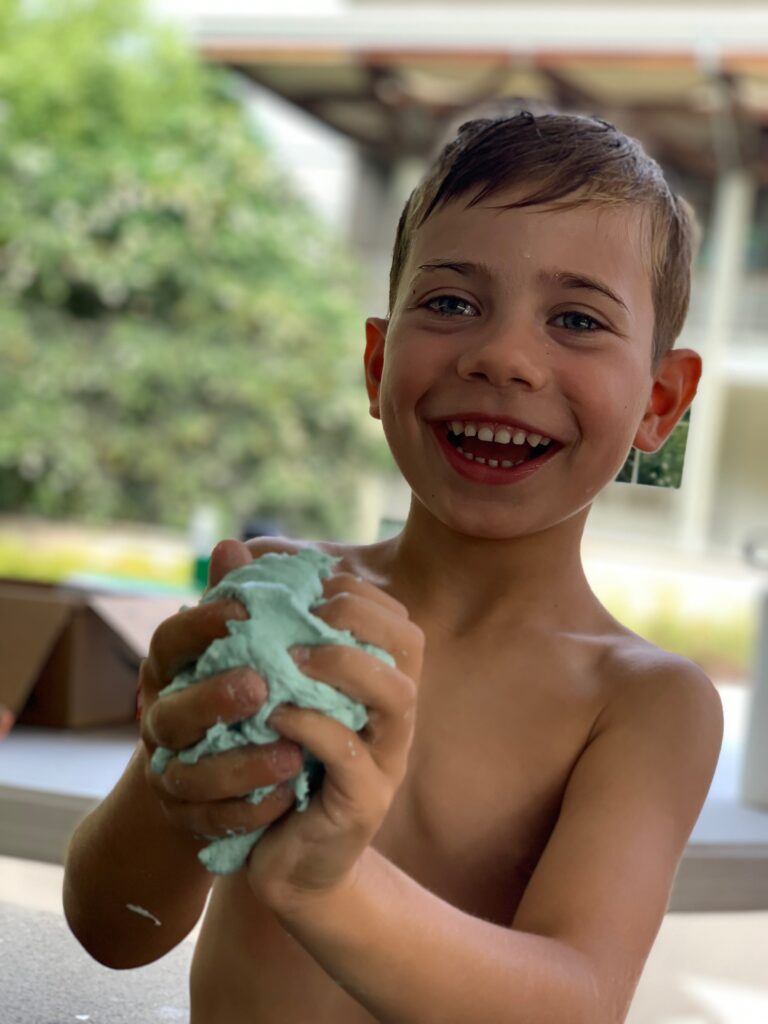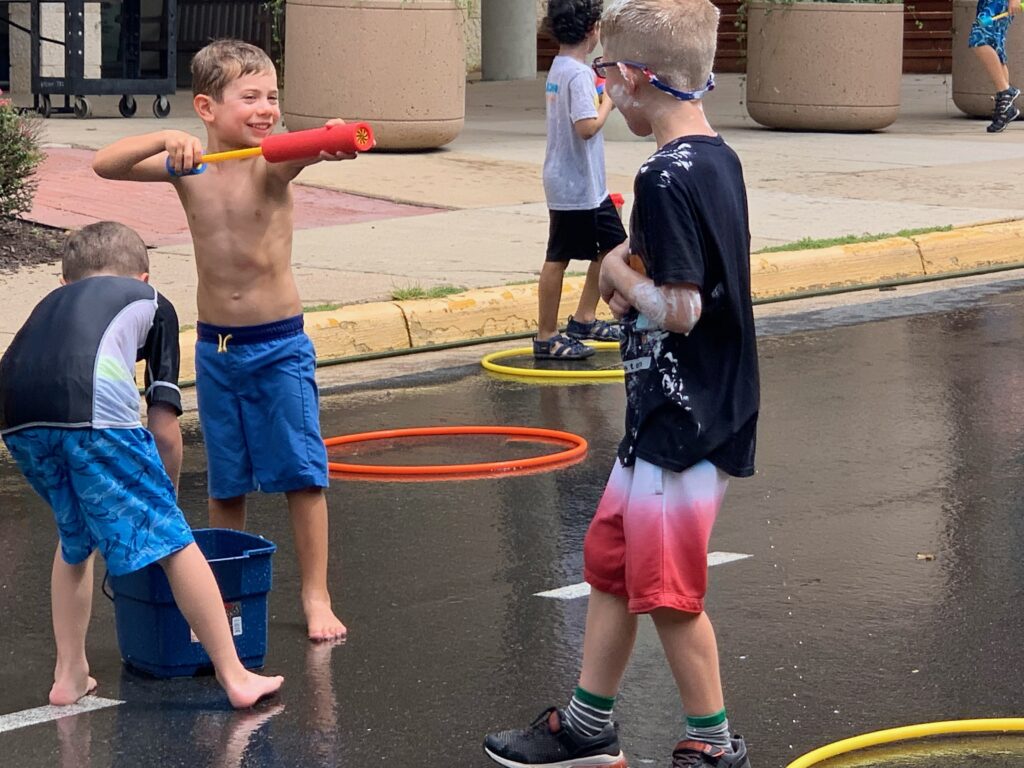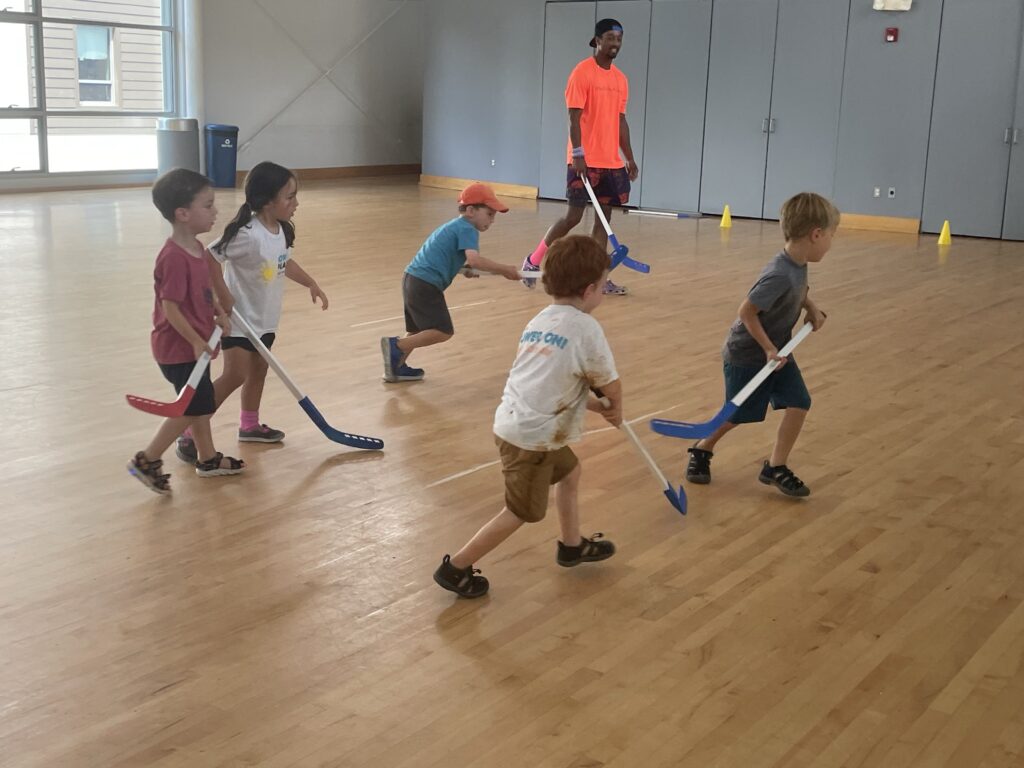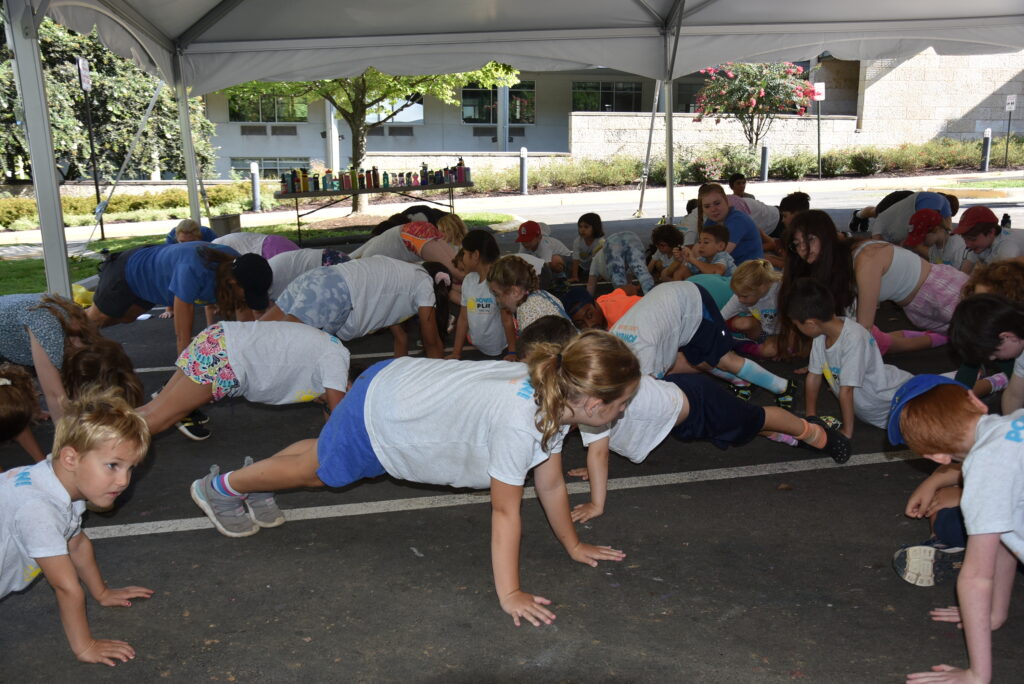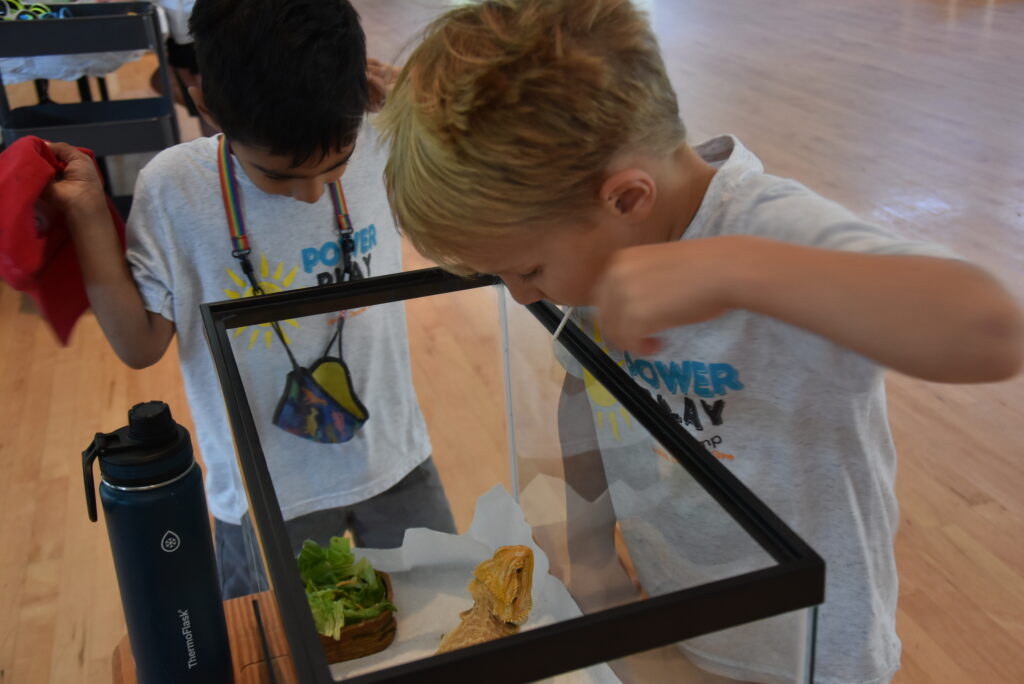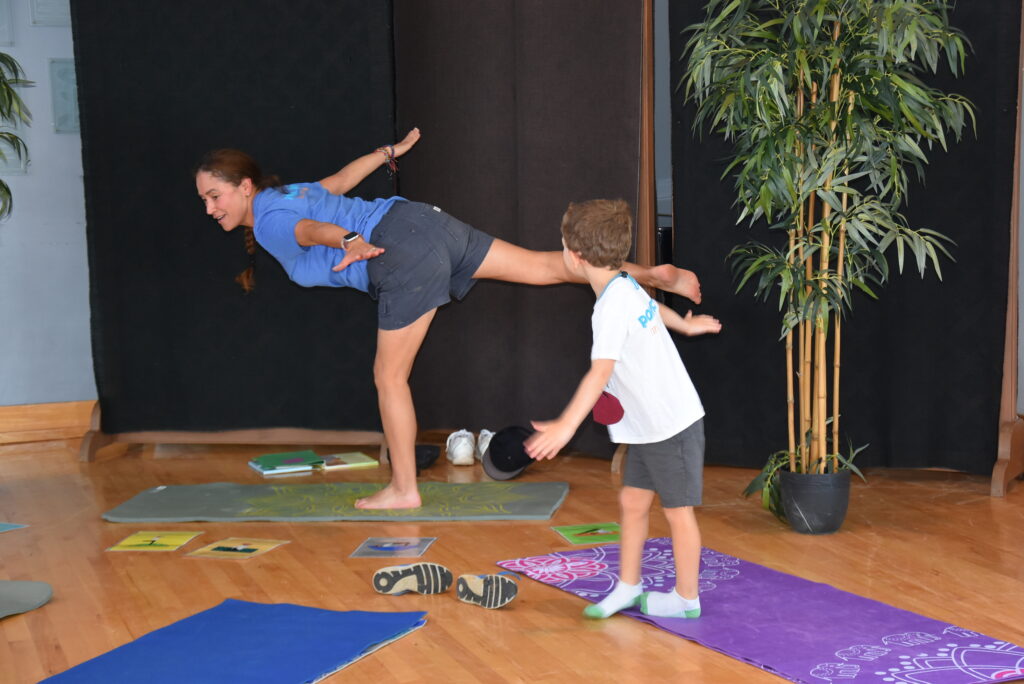Summer Camp
Dates: August 4-8 & August 11-15, 2025
Hours:
9:00am – 1:00pm: $1000
9:00am – 3:00pm: $1,350
Aftercare Available from 3:00 – 5:00 for $30 a day
Extended Day Available – arrange via Contact Us Form (link above).
Location: Temple Rodef Shalom
2100 Westmoreland Street, Falls Church VA
What is a typical day of camp like?
Camp starts at 9:00 am with a carpool lane that usually occurs in front of the outdoor natural play space. The camp coaches are available to welcome your child to camp, assist them to get out of the car with their belongings, and to enter play with new friends.
After some free playtime, a camp meeting is organized to share The Camp News describing the plan for the day and introducing the concepts behind P-O-W-E-R. Every day, a different letter and/or skill is emphasized in the daily plan. POWER skills across more specific social and emotional nuances within age appropriate topics are introduced to campers during break out discussion groups.
An active structured activity follows the meeting where the children will be given opportunity to practice social thinking, teamwork, recognizing their emotional state and adjusting their energy level.
Snack typically follows and occurs inside or under a canopy of trees to cool down, rest and prepare for water play. Collaborative snack preparation activities may be facilitated to allow campers to practice problem solving, listening, following directions and “thinking of others”.
During water play, shallow pools, water slides, and large bounce structures are available. Creek hikes, obstacle courses, and other sport-based activities are also offered. In addition, Mad Science and textured stations are available to explore as alternatives.
Lunch follows and is typically held indoors in a picnic style manner. Campers gather in spontaneous groups to socialize with support provided as needed.
After lunch, quieter structured activities are available in small groups. These may include board games, creating art, coloring, or sculpting within the IMAGINATION station. Other projects may include collaborating with a peer to perform in the weekly Talent Show or adding details to a graffiti wall, referred to as the “We” Wall, where campers can post information about themselves.
Extended day afternoon campers participate in additional structured activities to practice social thinking, teamwork, recognizing their emotional state and adjusting their energy level. These activities typically occur outside and within natural settings; however if the forecast is unfavorable, then indoor afternoon activities are planned. These may include relay races, small group discussions, watching short video clips that highlight a POWER skill or concept that fosters social intelligence, or engaging in problem solving challenges. Unstructured free time is also offered during the afternoon hours to allow campers to practice initiating play ideas, sustaining social play, and navigating the dynamic and unexpected interactive situations that spontaneously emerge while amongst peers.
REGISTRATION FORMS
POWER Play Kids Summer Camp FAQ
August 4 – August 8 and August 11 – 15, 2025
At POWER Play Kids Camp, we emPOWER children through play and collaborative fun to
heighten their social intelligence using mindful actions, critical thinking, and problem
solving! POWER Play Kids Camp also strives to develop campers’ social-emotional
competencies, which will emPOWER them to develop self-awareness and
self-confidence, develop emotional acuity to manage difficult emotions, and build
resilience through their successes and failures. The camp’s primary goal is for
children to have fun while practicing new skills and building on existing ones, all
through the POWER of Play.
What are POWER Skills?
POWER represents skills or qualities that enable children to thrive across social
settings and support their participation and self-awareness.
● P – stands for Plan. In order to successfully carry out play schemes, solve
problems, interact socially, or complete functional activities of daily living, one
needs to be able to formulate a plan, modify as needed, and complete a plan.
One POWER skill that falls under the letter P is developing reciprocity and
self-confidence, which are necessary skills when you are part of a group plan
and encounter differences of opinions and/or ideas. Many executive functioning
skills are emphasized within individual and/or group plans throughout each
camp day. For younger campers, a basic POWER skill is “keeping your body in the
group” so that they can listen, follow and participate in the plan.
● O – stands for Observe and becoming more aware of one’s surroundings, other
peers, and how one’s actions impact others. This POWER skill includes “thinking
with your eyes” and making smart guesses through observations and analysis.
In camp activities, campers are encouraged to notice cues from their
surroundings and peers to understand what is expected and to adjust their
actions, words, and emotions so that others feel comfortable.
● W – stands for “We”. To be successful across all social situations, one needs to
consider others in addition to their own interests and ideas in order to
collaborate and have fun. Practicing flexible thinking and problem-solving skills
are important POWER skills emphasized through the letter W. Campers are
supported to find common interests or shared experiences to make
connections with others. Friendship skills are practiced to nurture
relationships at camp and beyond.
● E – stands for Energy and Emotion. These two systems impact our
self-regulation and our ability to make a plan, observe, think about others, and
problem solve. Campers develop an understanding that various levels of energy
and emotional states impact relationships and their ability to be a part of a
group and complete tasks. Campers learn about identifying “hidden rules” and
“expected behaviors” and using strategies to regulate, manage anxious feelings
or fears, and problem solve. Learning the concept of “size of the problem” and
practicing appropriate reactions in relation to different problems is an
important POWER skill.
● R – stands for Rest and Relax and supports a child’s ability to recognize their
energy state and regulate based on strategies practiced at camp. On Fridays,
campers are thrilled to leisurely explore 15+ relaxation stations that provide
opportunities to identify ways to relax and practice slowing down. In past
summers, stations have included massage, yoga, dance, music, foot soaks,
mani-pedis, face painting, sewing, aromatherapy, creating fidgets, clay,
unstructured art area, cozy book corner, pet station, and nature hikes.
Two curriculums, Social Thinking by Michelle Garcia Winner, and The Zones of
Regulation by Leah M. Kuypers, provide a foundation for the concepts, themes and activities planned throughout the week. In addition, we will support the
understanding and use of POWER skills across more specific social and emotional
nuances regarding the following topics:
Worry Wise (understanding worries, and strategies to overpower a worry)
Respectful Relationships (words and actions matter)
Making and Keeping Friends (handling friendship drama, conversational skills, and more)
Brain Skills (learning and practicing organization of time, space and materials at
home and school, and other executive functioning skills)
Body Boundaries (understanding one’s own body bubble, how to defend your own, and how to respect others’ body boundaries)
Family First Aid (family communication and reaction styles, sibling bonds)
What Do I Say…(i.e. in a tough situation, to a bully, in response to teasing, when
embarrassed, and more)
Self Esteem (building and maintaining confidence, recognizing personal strengths)
Tech Talk (positive & negative of technology and how it may impact our brain and
relationships)
Who will benefit from attending POWER Play Kids Camp?
Our camp involves learning about thoughts and feelings, thinking about others, being
part of and collaborating in a group, and developing friendships. POWER Play helps
campers understand and manage their worries, cope with stress, and recognize
their strengths to overcome challenges. Camp also targets self-regulatory control
and developing an awareness of various energy and emotional levels. These skills
and social thinking are best nurtured with children who have average to strong
verbal language and solid cognitive abilities and are between the ages of 4 – 12.
Occasionally, we also welcome 3-year-olds if there are enough peers to form a young camper group. For this group, the Social Thinking program is carefully tailored to meet their developmental level and needs.
Where is the camp located?
Camp will take place at Temple Rodef Shalom located at 2100 Westmoreland Street in
Falls Church, VA. Temple Rodef Shalom is nestled on the edge of Cougar Woods and
has multiple established outdoor playgrounds, a mediation garden, and one large
natural wooded play space. This facility offers us a large multi-purpose room and
classrooms for small group activities. Most of our activities occur outside unless
weather prohibits our plan. There will be daily opportunities for outdoor adventures,
gross motor exercise, and water fun.
What fun activities will campers enjoy at POWER Play?
At POWER Play, campers enjoy a variety of classic camp activities, including crafts, scavenger hunts, sports, water play, unstructured playground time, and STEM-based projects. Twice a week, they get to play on large inflatable structures, such as a ninja obstacle course or a water slide. One of the campers’ favorite activities happens every Wednesday: the restaurant challenge! In groups, they work together to set up, decorate, and clean up their own “restaurant.” Campers take lunch orders, prepare meals, and serve food to each other. On Fridays, campers explore Relaxation Stations (see letter” R” under POWER Skills for more details). Extended day campers also participate in special club activities, which may include hiking, clay art, watercolor painting, street hockey, cooking, or board games. Each morning, soon after arrival, all campers gather for a camp-wide meeting called The News. During this time, campers learn about POWER skills through fun skits and visuals – often, they get to take part in the skits themselves.
What is the camp ratio and who is part of the team?
We maintain a low child to coach ratio (no more than 6 children to 1 adult/coach),
which allows staff to offer individualized attention to each child and create small
groups. Camp is co-directed by Jane Rutt, OTR/L, and Melanie Bielski, M.S. CCC-SLP, who participate in and lead activities. Experienced coaches, teachers and GWU graduate students studying speech-language pathology serve as coaches. High school and middle school students also join our camp to serve as assistants and play peers.
What does my child need to bring to camp each day?
Each child will receive a camp T-shirt, which we encourage them to wear every day. They should also bring a backpack with the following items inside – extra change of clothes, sunscreen, bathing suit, and towel. In addition, please send in a nut free lunch and water bottle. All personal items must be labeled to assist with
organization.
How will we communicate with you regarding camp?
Parents will receive an emailed invitation to our camp page on the app Band.
Through Band we will post pictures and a short description of the targeted POWER
skills featured that day. It will also be the main platform for updates, schedule
changes, and reminders about what to wear and bring. Be sure to check Band every morning by 8:00 AM for any important announcements!
What is the cost of camp and when is payment due?
Each week of camp costs $1,000 for half-day participation from 9:00 am – 1:00 pm
and $1,350 for full-day participation from 9:00 am – 3:00 pm. A 50% deposit for
each week of camp is due with a completed registration form by April 30th. The
final payment is due by June 1st. No refunds are given except under extraordinary
conditions.
Do you provide camp aftercare?
We offer camp aftercare from 3:00 – 5:00pm for an additional fee of $30/day.
During this time, campers will participate in unstructured play activities supervised
by an assistant. Camp aftercare can be prearranged for the entire week or on a
daily basis as needed. There will be NO camp aftercare on Friday, August 15th. All
campers must be picked up by 3:00 pm on August 15th.
How do i submit payment and registration?
You can submit Registration, Consent & Agreement, and Release of Liability Waiver online at powerplaykidscamp.com. If you prefer, you can print the Registration, Consent & Agreement, and Release of Liability Waiver and send by mail.
Payment is accepted by check, Venmo, or Zelle. Please make checks payable to
Power Play Kids LLC and mail to Melanie Bielski, 730 Ridge Drive, McLean, VA 22101. Zelle and Venmo payments can be sent to either Jane Rutt or Melanie Bielski
